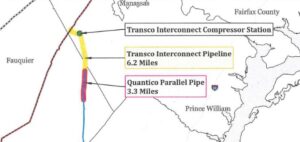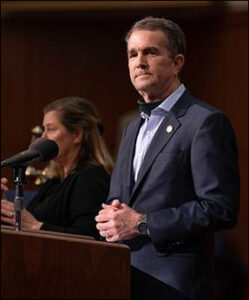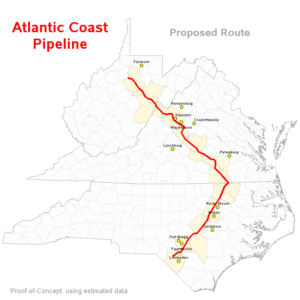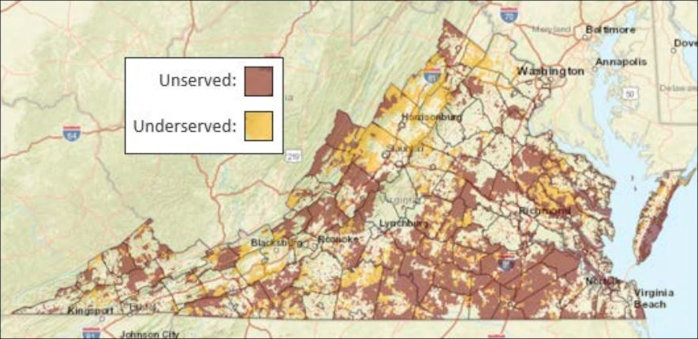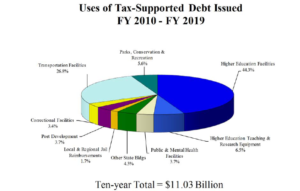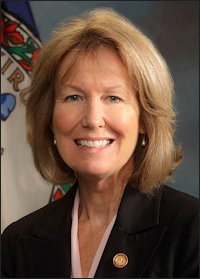By Peter Galuszka
The $8.5 billion Atlantic Coast Pipeline has won a significant legal victory but the war is far from over.
The U.S. Supreme Court, in a 7-2 decision, has ruled in favor of project operated by Dominion Energy and Duke Energy saying that its 42-inch pipeline can cross under the Appalachian Trail in the George Washington National Forest.
The Court ruled that the pipeline can pass 600 feet underneath the trail and that the U.S. Forest Service has the right to allow a right of way. The Richmond-based 4th Circuit Court of Appeals had previously ruled that the Forest Service had no such authority.
Dissenting, Justices Sonia Sotomayor and Elena Kagan wrote that the U.S. Minerals Leasing Act does give the federal government the right to regulate federal land, including trails. Justice Clarence Thomas, who wrote the majority ruling, said that plans to bury the pipeline under the Appalachian Trail represent an easement which is not the same as “land.”
The project still faces eight other permitting issues involving the Forest Service, the U.S. Fish & Wildlife Service, the National Park Service and the U.S. Army Corps of Engineers. Continue reading




